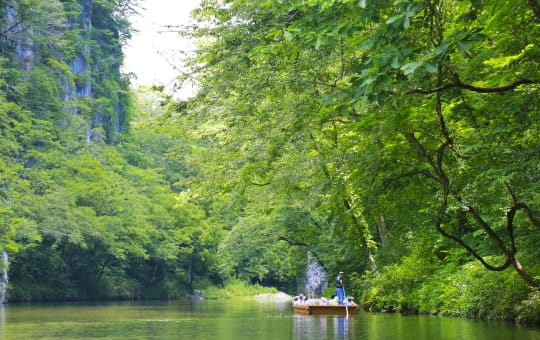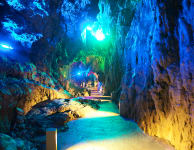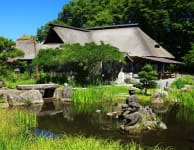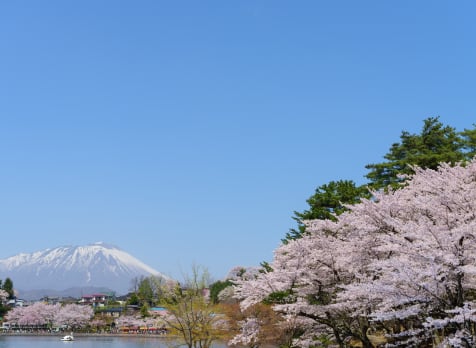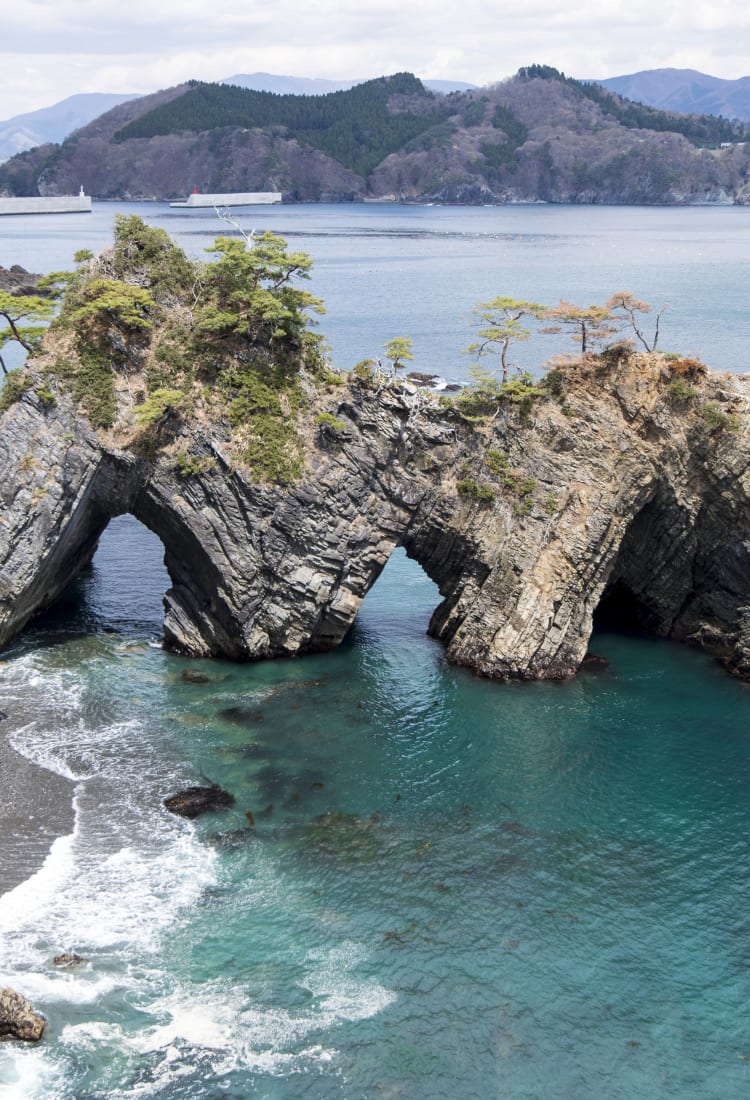

IWATE Coastal Iwate Experience the rugged, unspoiled beauty of Iwate's coastline
Experience the rugged, unspoiled beauty of Iwate's coastline
The coast of Iwate is shaped by the forces of nature from its rock formations to the towns devastated by the 2011 earthquake and tsunami. From beaches to mysterious caves, coastal Iwate is a fascinating place to explore.
Don't Miss
- The rock formations of Kitayamazaki, Jodogohama and the Goishi Coast
- Ryusendo Cave and its mysterious underground lakes
- Making amber jewelry at the local amber museum
How to Get There
The coast can be reached by train or bus from many cities in Iwate including Morioka , Hanamaki, and Ichinoseki. Morioka Station gives you the most options.
Quick Facts
The coast of Iwate is part of the Sanriku Fukko National Park
The coast was struck by a massive tsunami on March 11, 2011

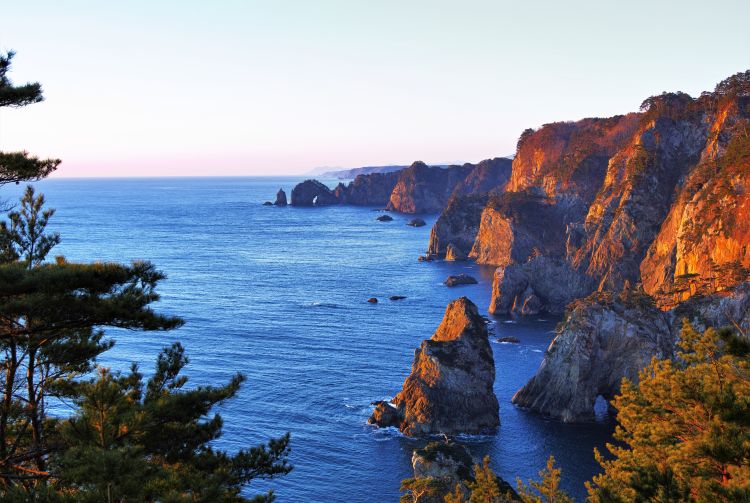
Rock formations at Kitayamazaki
Natural sculptures
The coast of Iwate is most famous for its unique rock formations. You can see some of these at Kitayamazaki in Tanohata, where the 200-meter Unosu Cliffs rise out of the ocean. You can stroll along Kitayamazaki's many trails or take a boat tour and see the cliffs from the waters.
The bat cave
At Ryusendo Cave , there are three crystal-clear underground lakes and many types of bats. The pure mineral waters from the lakes are bottled and sold in the cave shop. Sometimes the bats will fly overhead, but usually they hide in the vast stalactites that have formed in the cave.


Remnants of the earthquake
North of Miyako, the district of Taro was heavily damaged by the 2011 tsunami. The Taro Kanko Hotel has been turned into a museum to memorialize the disaster. Four floors of this six-story hotel were destroyed by the waves. Tour guides are available on site, or you can explore the museum on your own.
Buddha's paradise
Halfway along the coast is Jodogahama Beach . In a sheltered inlet with calm water, it's a great place for swimming. The natural beauty of the beach framed by jutting rocks has been compared with the "Pure Land" or paradise of Buddhist belief. One of the most popular sites nearby is a vivid blue cave. Like the famed blue grotto of Capri, you can venture inside on a small fishing boat.


Sports mecca
Located between Miyako and Ofunato on the coast of Iwate, Kamaishi has been a rugby mecca for years. On some weekends, you can watch the local semi-pro team, the Kamaishi Seawaves. Kamaishi was selected as one of the host cities for the 2019 Rugby World Cup, during which many fans visited.
"Go" to the south
The pebbles that lie on the beaches of the Goishi Coast have been polished over time so that they look like the pieces from the Japanese game Go. Much like the northern part of the coast, the southern part has several unique rock formations. Hearing the thunderous sounds of water surging into the Kaminari Iwa is an experience you won't want to miss.

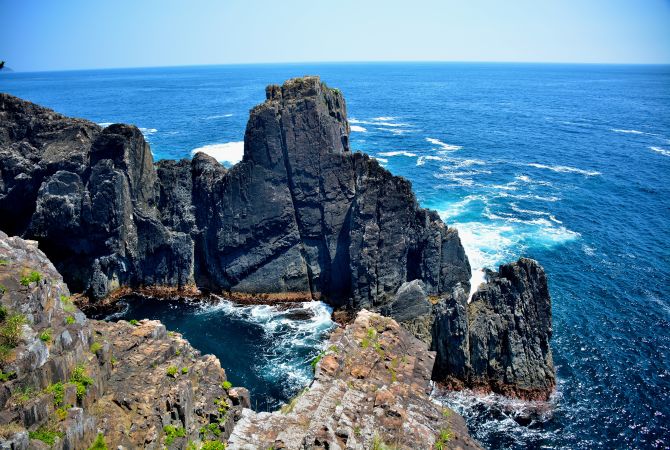

Kaminara-Iwa
Japan's most famous pine tree
Just south of the Goishi Coast is Rikuzentakata. The city was almost completely flattened by the 2011 tsunami, but one single pine tree remained. Sadly, in 2012 the pine tree died from salt-water poisoning and was replaced with a replica as a symbol of hope. You can see the replica near the beach.
Riches from the sea
Along the coast of Iwate, you can enjoy some of the freshest sushi in Japan. Visit one of the many shops along the Sanriku coast or Tanohata, or head to the fish market in Miyako for super-fresh sea urchin, abalone, and Pacific saury.
Nature's ancient gems
The Kuji Amber Museum located on the outskirts of Kuji. You can learn about the history of this unique fossilized resin, view amber art and the workshops where jewelry is made, and of course, purchase amber souvenirs.
There are workshops available at the museum, which include mining amber outdoors or making your own piece of jewelry.




















































